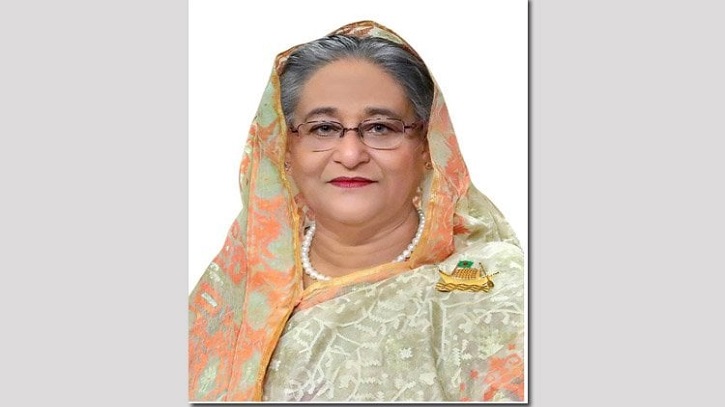Developing a culture centred on collaboration and consensus-building is of utmost importance for Bangladesh to safeguard the enduring stability and prosperity of its democratic institutions
Bangladesh has achieved notable progress in building a democratic administration. However, the country faces the persistent issue of a contentious political culture, which hinders the process of democratic consolidation.
The prevalence of an adversarial dynamic in political discourse, marked by frequent confrontations and a dearth of constructive conversation, impedes societal advancement and erodes the fundamental principles of a resilient and all-encompassing democratic system. Developing a culture centred on collaboration and consensus-building is of utmost importance for Bangladesh to safeguard the enduring stability and prosperity of its democratic institutions.
Democratic consolidation is the term used to describe the process by which a country’s democratic institutions are firmly established and widely accepted by political players and the general populace. This process entails the enhancement of democratic norms, institutions, and practises, as well as fostering a political culture that embraces the fundamental tenets of democratic government.
Nevertheless, the political environment in Bangladesh has been characterized by a confrontational culture, wherein political parties participate in acrimonious contests and employ disruptive strategies, frequently compromising democratic principles and impeding national advancement.
The erosion of trust in democratic institutions is a significant outcome resulting from a hostile political culture. When political leaders prioritize party interests over the pursuit of the general good, it can lead to disillusionment among voters and a loss of trust in the democratic system.
The absence of trust poses a significant challenge to the legitimacy of democratic institutions, impeding their ability to fulfil their role as tools for representative government successfully. The lack of trust hinders the public’s engagement, undermines the establishment of accountability, and perpetuates a recurring pattern of political instability.
Moreover, the adversarial characteristics inherent in politics frequently result in a policy impasse and hindrance of advancement. Instead of actively participating in productive discourse and striving for consensus, political factions tend to adopt a zero-sum approach, prioritizing the defeat of their adversaries over the pursuit of pragmatic resolutions to urgent issues. The current deadlock obstructs the creation and execution of efficient policies, impeding the government’s capacity to tackle pressing issues such as reducing poverty, promoting economic growth, and establishing social equity.
One further outcome of contentious politics is the societal polarization along partisan divisions. When political discourse becomes characterized by divisiveness and hatred, it cultivates an attitude of opposition between different groups, resulting in societal fragmentation and a deterioration of social cohesiveness.
The phenomenon of polarization has the potential to intensify societal tensions, obstruct social progress, and harm the nation’s overall development. A fractured community is less inclined to establish a consensus and collaborate towards mutually agreed objectives, posing a threat to the establishment and stability of democratic systems.
Bangladesh has a hostile political culture, with frequent violence before parliamentary elections. Opposition movements denounce the electoral process as illegitimate, inciting opposition. However, this opposition has used inequitable tactics, including misinformation, to belittle the government’s standing.
This behaviour deviates from the expected standards of a responsible opposition. Opposition parties should act as vigilant overseers, ensuring governmental accountability. They should constructively critique the government’s activities while applauding its beneficial measures. Similarly, the government must create an environment that fosters the expression of oppositional viewpoints and their corresponding demands.
Bangladesh must foster a climate that promotes cooperation and discussion among political stakeholders to address challenges and facilitate democratic consolidation. Leaders should prioritize national interests over party interests, involving active participation in inclusive dialogues to identify shared objectives and develop consensus. This strategy requires concessions, appreciation for diverse perspectives, and recognition that democratic administration is collaborative.
There is a pressing need to cultivate a transformation in the cognitive framework of political leaders. Individuals must have a receptive and unbiased mindset that centres on the nation’s advancement, placing the collective’s welfare above party agendas.
The younger political leaders should actively embrace and promote this shift, serving as role models for others to emulate. By undertaking this approach, we may establish the groundwork for a more advanced and cohesive perspective on the development of our country.
Enhancing civic education and promoting political consciousness is crucial for Bangladesh. Disseminating knowledge about democratic principles and procedures can cultivate a more educated populace, leading to transparency and responsibility from political representatives. This can foster a climate of engaged citizenry and civic involvement, thereby enhancing democratic consolidation.
The media also plays a crucial role in influencing a nation’s political culture. The prioritization of fair and objective reporting by the media is of utmost importance, as it provides a platform for a wide range of opinions and fosters a constructive environment for political conversation.
By refraining from sensationalism and actively supporting responsible journalism, the media can foster a better, knowledgeable citizenry and enable productive discourse among political stakeholders.
Presently, the media landscape in Bangladesh is characterized by profound divides. The operations of media houses consistently demonstrate a tendency to identify themselves with specific political ideologies, resulting in a discernible bias in their positions.
To address this problem, media organizations should adhere to ethical principles that prioritize journalistic neutrality. The inherent bias exhibited by the media presents substantial challenges to the process of democratic consolidation within the nation. Hence, upholding impartial journalism is crucial in cultivating a cohesive and democratic societal framework.
Pranab Kumar Panday is a Professor in the Department of Public Administration at the University of Rajshahi.
Source: Dhaka Tribune.

